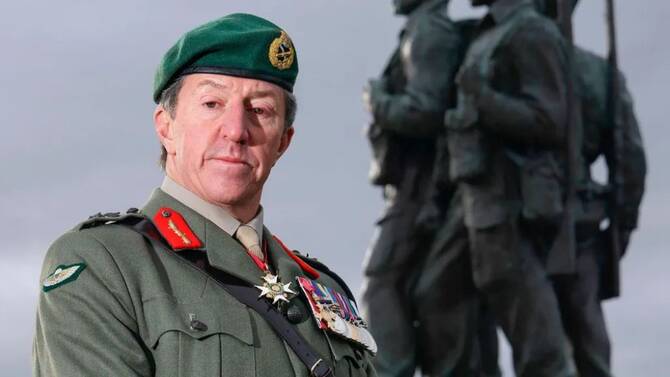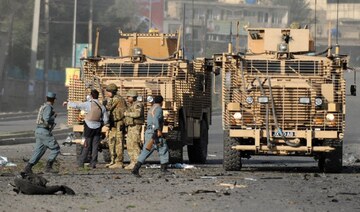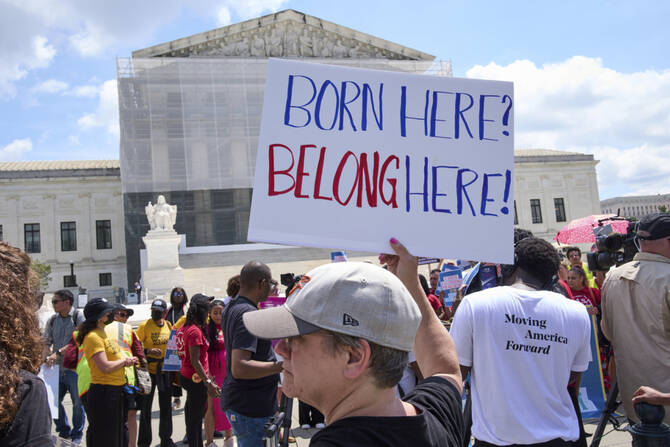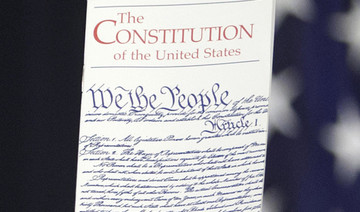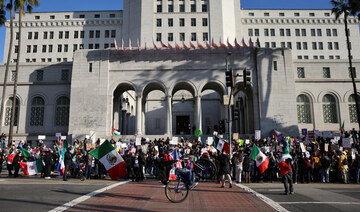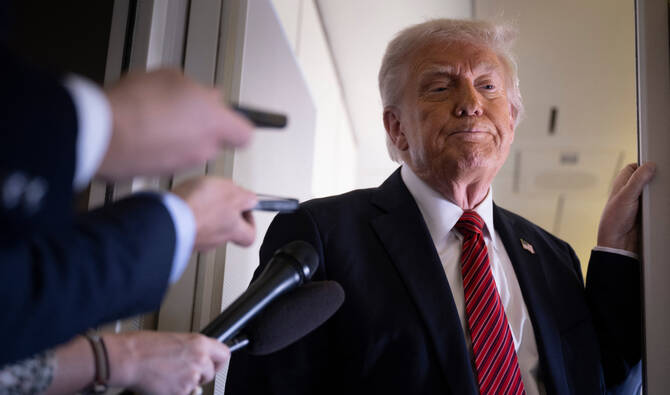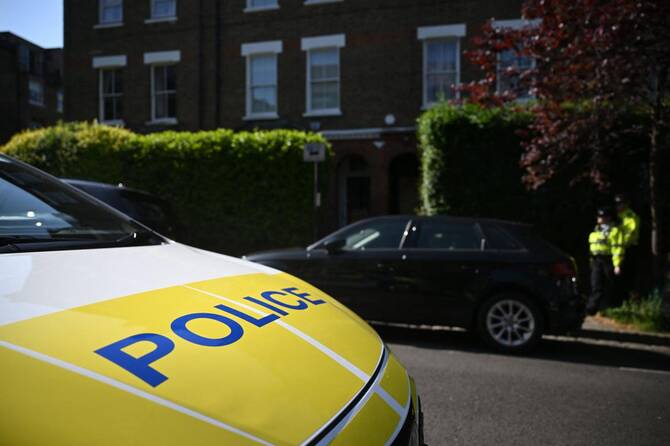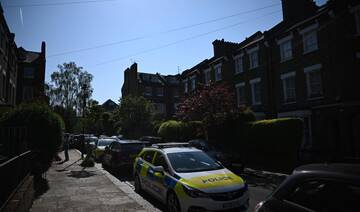ANTALYA: US Secretary of State Marco Rubio voiced openness Thursday to any new ideas to bring aid into Gaza after a US- and Israeli-backed plan was sharply criticized, expressing concern over the humanitarian situation in the territory.
A new US-backed foundation on Wednesday announced a plan to begin distributing aid later this month in Gaza, where Israel has cut off food and other humanitarian supplies for more than two months.
“We’re troubled by the humanitarian situation there,” Rubio told reporters after warnings of famine in war-ravaged Gaza.
“I hear criticisms of that plan. We’re open to an alternative if someone has a better one,” Rubio said on a visit to Turkiye.
“We are for all the aid we can get without Hamas being able to steal it from people.”
Rubio also said he spoke about the situation in Gaza in a telephone call on Thursday with Israeli Prime Minister Benjamin Netanyahu, as President Donald Trump tours Arab monarchies in the Gulf region.
Netanyahu has vowed a new offensive to wipe out Hamas, which sparked the war in Gaza with the deadliest attack against Israel in its history on October 7, 2023.
Rubio said the United States shared Netanyahu’s desire to eliminate the Palestinian militant group.
“I think all of us would love to see an enduring end to this conflict, which, by the way, would end immediately if Hamas were to surrender,” Rubio said.
“As long as they exist and they’re around, you’re not going to have peace.”
Israel has imposed a blockade for over two months on Gaza, leading UN agencies and other humanitarian groups to warn of shrinking fuel and medicine supplies to the territory of 2.4 million Palestinians.
The Gaza Humanitarian Foundation (GHF), said Wednesday it would begin distributing humanitarian aid in the Palestinian territory by the end of the month, with plans to provide nearly 300 million meals over an initial period of 90 days.
However little is known about the foundation, which has been headquartered in Geneva since February.
Asked Thursday whether the United States was providing funding to the organization, State Department deputy spokesperson Tommy Pigott referred reporters to the foundation for further detail.
Calling the initiative an “independent plan,” Pigott said the United States would “endorse this plan in the sense that we want to see creative solutions.”
UN rules out involvement
The United Nations meanwhile ruled out involvement in the project.
“I made it clear that we participate in aid operations if they are in accordance with our basic principles,” said UN spokesman Farhan Haq.
“As we’ve stated repeatedly, this particular distribution plan does not accord with our basic principles, including those of impartiality, neutrality, independence, and we will not be participating in this.”
The initiative would effectively sideline the UN, which has trucks loaded with 171,000 tons of food waiting to enter the territory.
“The UN have a plan, an excellent plan, that is ready to be implemented as soon as we’re allowed to do our work,” he said.
But Danny Danon, Israel’s ambassador to the UN, reiterated that his country would not allow a return to the previous aid system, which he believes had ties to Hamas.
He meanwhile called on UN Secretary-General Antonio Guterres to “recalculate” the body’s approach to what would be a “major” operation.
He added that Israel would not fund the US-backed GHF efforts but would facilitate them.







